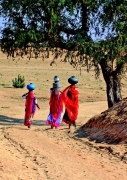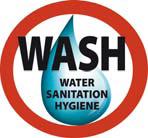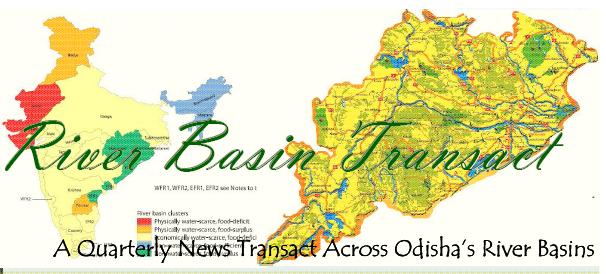Drinking and other Domestic Uses
UN affirms the right to safe and clean drinking water
Posted on 02 Aug, 2010 02:56 PMA remarkable piece of water history should have been headline news everywhere this week.
Deaths due to water pollution
Posted on 02 Aug, 2010 02:38 PMDeaths due to water pollution occur mainly as a consequence of drinking of contaminated water. The common diseases caused by consumption of contaminated water are Cholera, Viral Hepatitis, Enteric Fever (Typhoid) and Acute Diarrhoeal Diseases (ADD).
The number of deaths reported State-wise on account of Cholera, Viral Hepatitis, Enteric Fever (Typhoid) and Acute Diarrhoeal Diseases (ADD) for the years 2007, 2008 and 2009 are given in Annexure – I-III.
India WASH forum e-newsletter - Update 13 July 2010
Posted on 02 Aug, 2010 11:56 AMWe see this newsletter as a platform for independent credible voice in the water and sanitation sector. Our emphasis is on bringing together critical news and information with analysis. In this issue we share news and analysis on topical issues and developments.
The Department of Drinking Water and Sanitation(DDWS) has simultaneously invited inputs to Discussion Papers on Drinking Water and Sanitation, circulated on Solution Exchange. Inputs given by India WASH Forum, on this, is enclosed in this Update. We have pointed out the missing elements of sanitation improvement strategy that include, criticality of providing water as an inseparable component to household sanitation, the tendency to see behavior change as a lifestyle issue and not linked to the hardware components, peoples livelihoods and living conditions. Suggestions for what needs to be done to strengthen the implementation mechanism of the flagship sanitation programme(TSC) and partnerships.
Second issue of quarterly Odisha river basin news
Posted on 30 Jul, 2010 12:55 PM![]()
We had mentioned while dispatching our 1st Issue of River Basin Transact that the present pace and direction of development bandwagon in Odisha, made it imperative for its civil society and citizens alike to give more attention to its rivers, before it became too late.
During this quarter (Apr-Jun), there are quite a few such civil society responses towards redefining the way our rivers are being managed. While Dakshin Odisha Vikash Parishad (DOVP) came up with a suggestion to have Integrated River Valley Project in line of TVA in USA to manage South Orissan Rivers, State Govt resolved not to allow any new industry to draw water from the Brahmani and the Baitarani. Towards the end of the quarter alignment of civil society and political parties around MBA (Mahanadi Banchao Andolan) to protest diversion of Mahanadi water to POSCO and IOC made the headlines local dailies.
Groundwater table and hydrochemistry of Kakinada coastal aquifer– A research report by National Institute of Hydrology
Posted on 28 Jul, 2010 03:05 PMThe report deals with groundwater table and hydrochemistry of the Kakinada coastal aquifer in East Godavari, Andhra Pradesh.
Jagatguru Shankaracharya Swami Swaroopanand and Swami Ramdev offer support to Dr. G.D. Agrawal on his fast unto death
Posted on 23 Jul, 2010 11:42 PMJagatguru Shankaracharya Swami Swaroopanand of Dwarkapeeth sent his personal emissary Swami Dharanand to convey his support to Dr. G.D. Agrawal whose third fast-unto-death to ensure the natural flow in river Bhagirathi (Ganga) from Gangotri to Uttarkashi entered its second day. Yesterday (July 21) Swami Ramdev spent an hour in the evening with Dr. Agrawal and offered his full support.
Evaluation of water supply system of Kakinada town in Andhra Pradesh - A research report by National Institute of Hydrology
Posted on 23 Jul, 2010 09:46 PMThe report presents the evaluation of water supply system of Kakinada town in Andhra Pradesh. The neglect of hydrology of a region, while undertaking planning and development works in an urban environment, has serious consequences, the most notable being non-availability of enough potable drinking water to citizens. Water budget studies can be undertaken with all the available records to improve the functioning of such systems and to identify additional alternate resources.
Project Boond - V, a comprehensive mitigation initiative in the drought prone regions of Bharatpur
Posted on 21 Jul, 2010 01:47 PMWith the failure of monsoons in Rajasthan and dry-up of the Bilaspur dam, the water situation assumes graver proportions in most parts of Rajasthan, besides Jaipur, Tonk and adjacent districts. These areas, now in the news for acute water shortage problems, have always depended upon monsoons for their traditional rainwater-harvesting systems and the riverine sources.
While the Government has taken remedial measures with construction of tube-wells across the rural and drought-prone areas, they have been sporadic and insufficient at their best. Merely announcing relief measures and planning of schemes on paper as an immediate disaster management strategy are not solutions to mitigation of water problems in this State.
e-Disha July newsletter from Consortium for DEWATS Dissemination Society
Posted on 08 Jul, 2010 10:05 AMArticle and Image Courtesy: Consortium for DEWATS Dessemination Society

The July edition of e-Disha published by the Consortium of DEWATS Dissemination Society (CDD) has the following highlights:
Progress on sanitation and drinking water - A report by WHO and UNICEF (2010)
Posted on 01 Jul, 2010 01:45 PM This report by WHO and UNICEF, describes the global status and trends with respect to the use of safe drinking water and basic sanitation, and global progress made towards the Millennium Development Goals (MDGs) in the context of drinking water and sanitation targets. The findings reveal some striking disparities with respect to:
This report by WHO and UNICEF, describes the global status and trends with respect to the use of safe drinking water and basic sanitation, and global progress made towards the Millennium Development Goals (MDGs) in the context of drinking water and sanitation targets. The findings reveal some striking disparities with respect to:
- the gap between progress in providing access to drinking water versus sanitation
- the divide between urban and rural populations in terms of the services
- the differences in the way different regions are performing
- disparities between different socio-economic strata in the society
- gendered differences in the burden experienced in accessing and collection of drinking water







